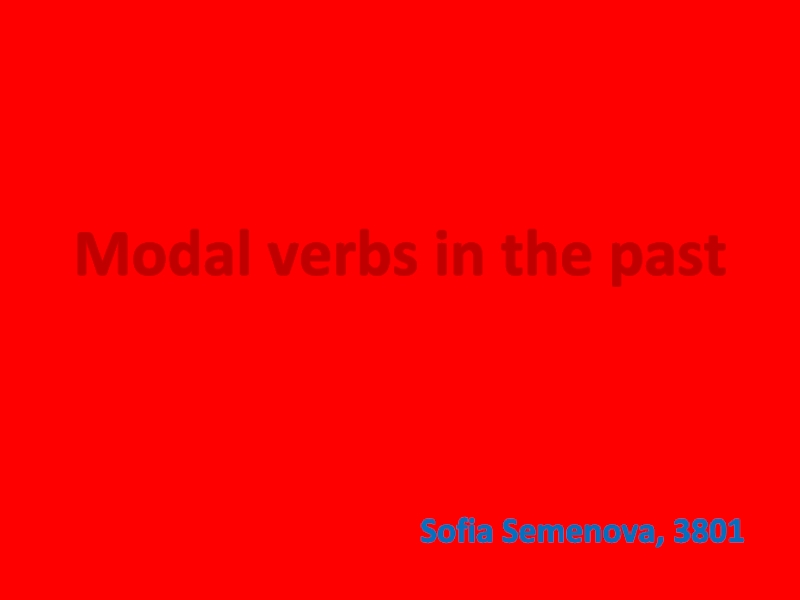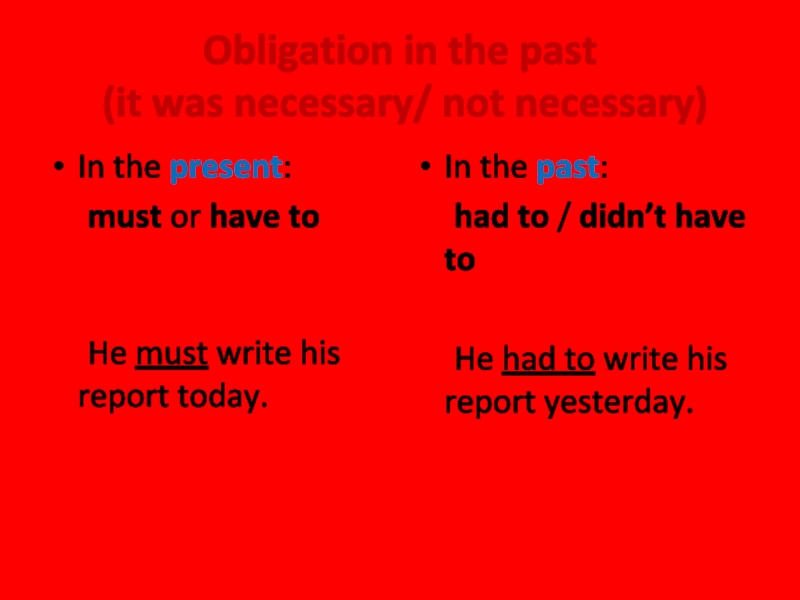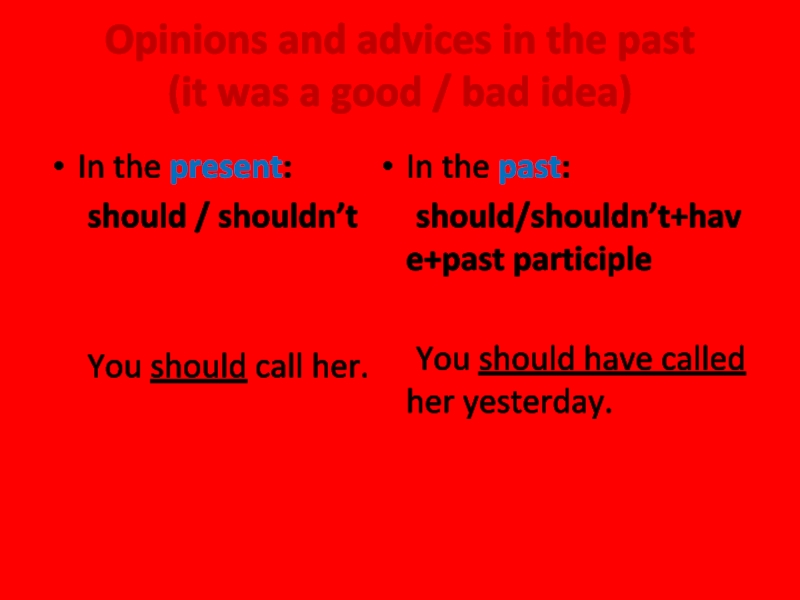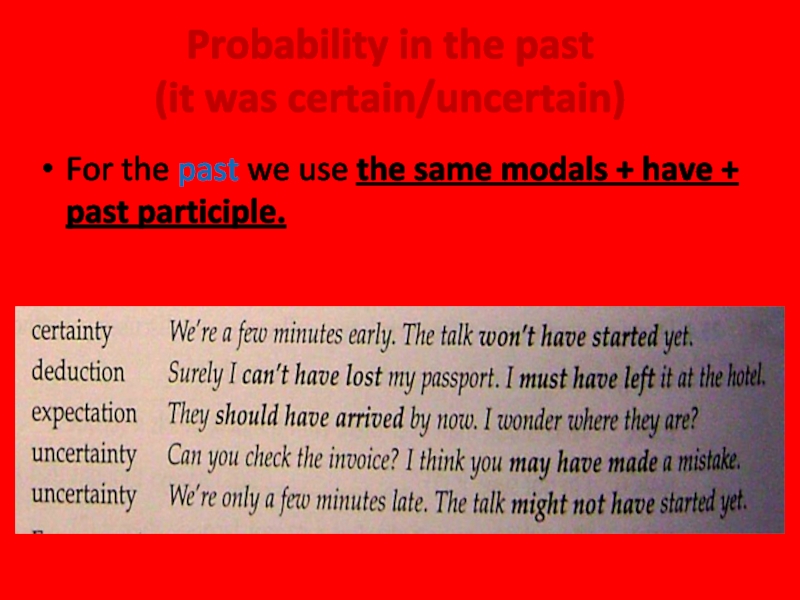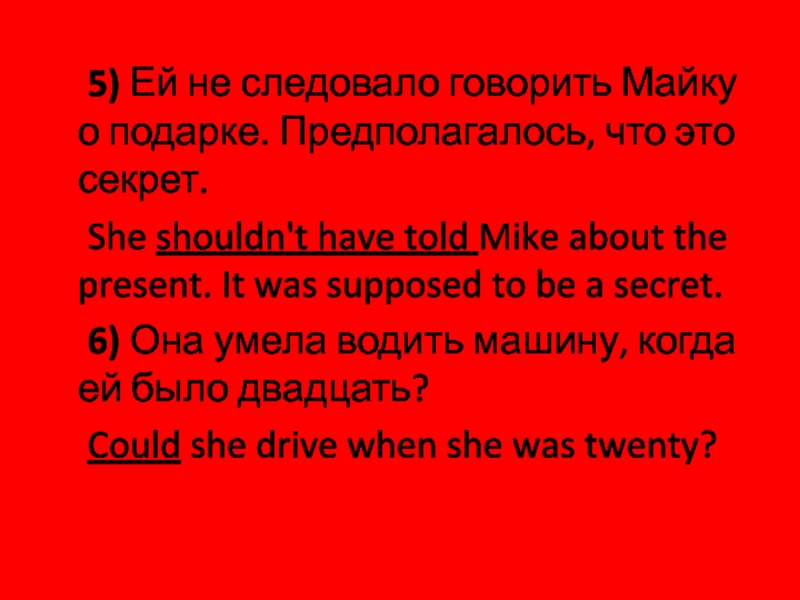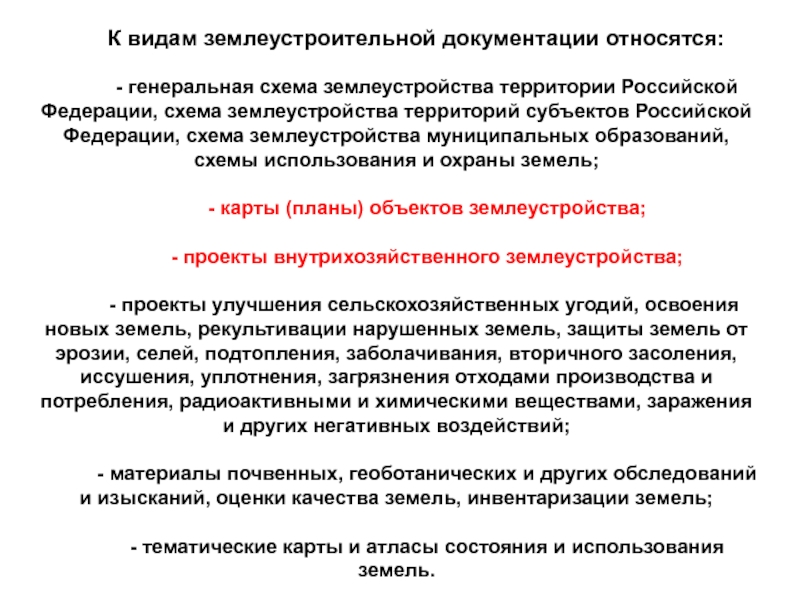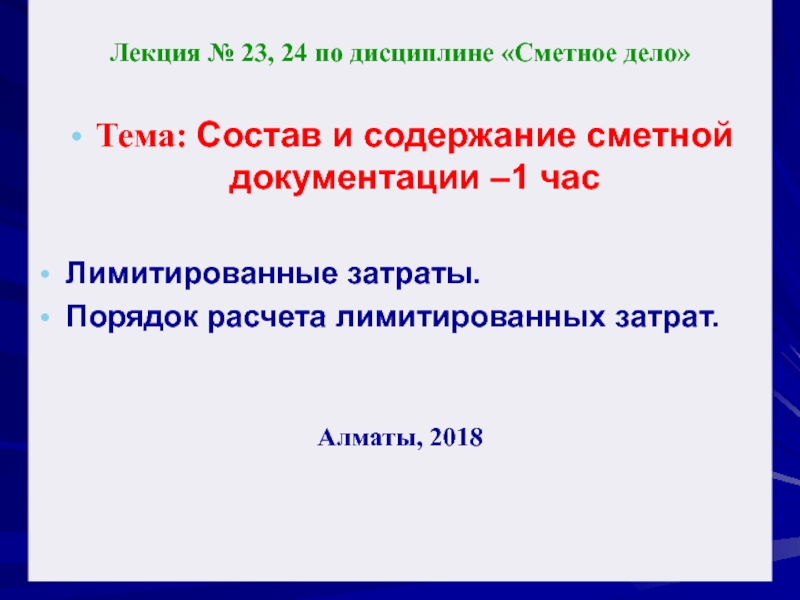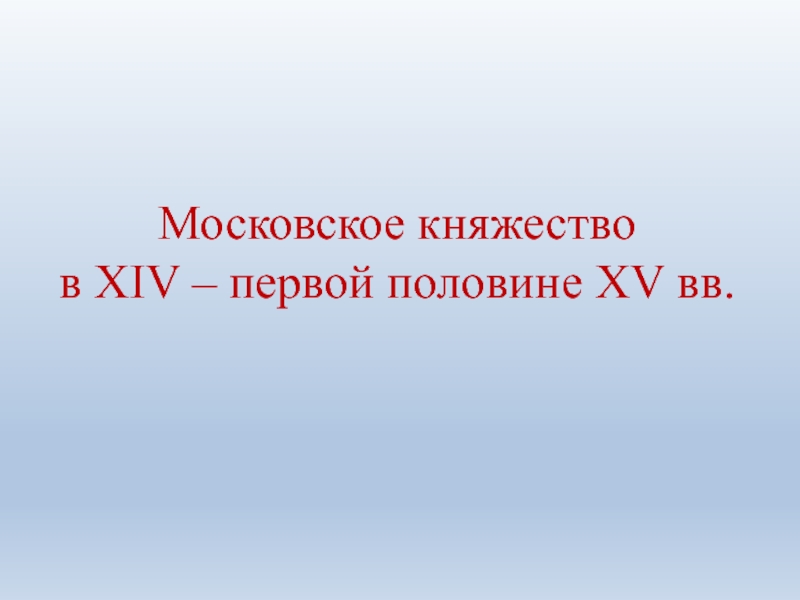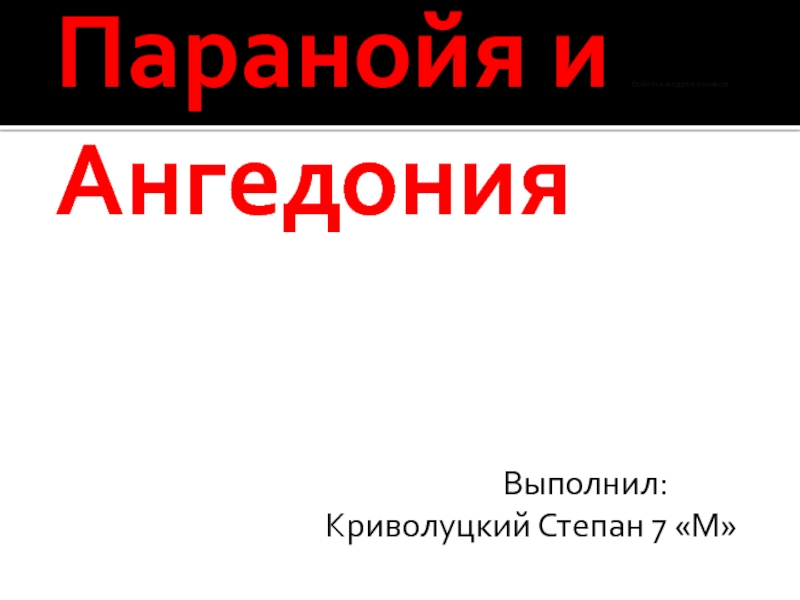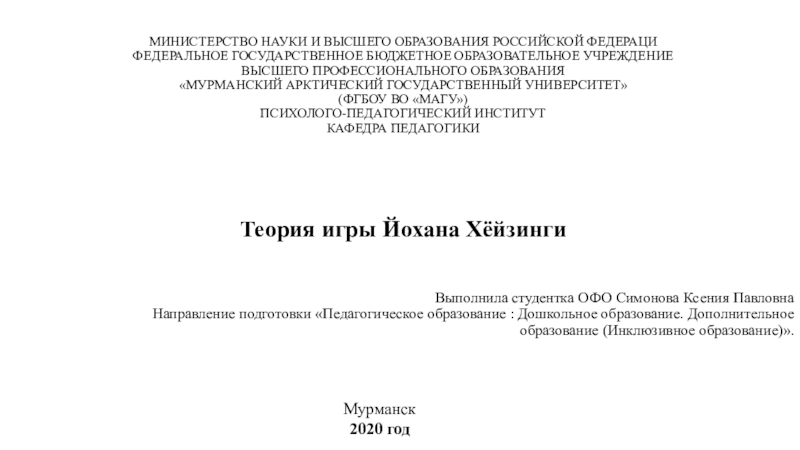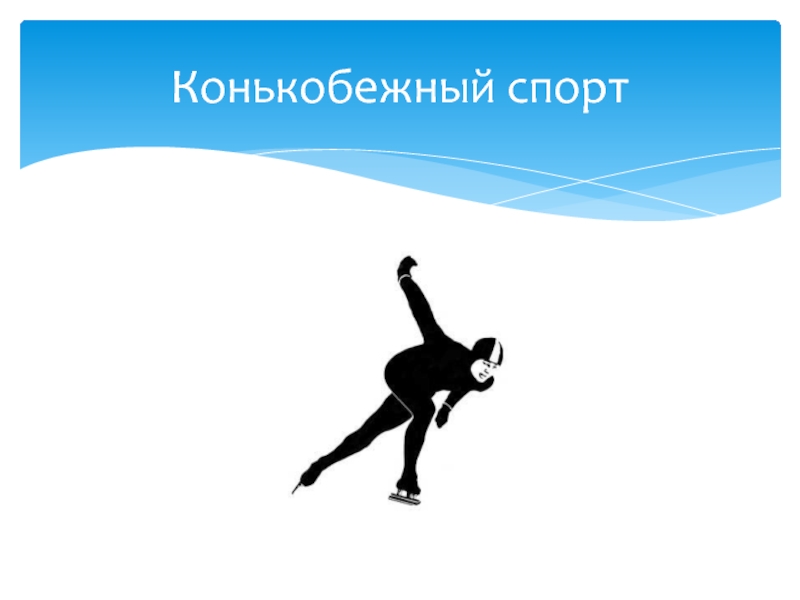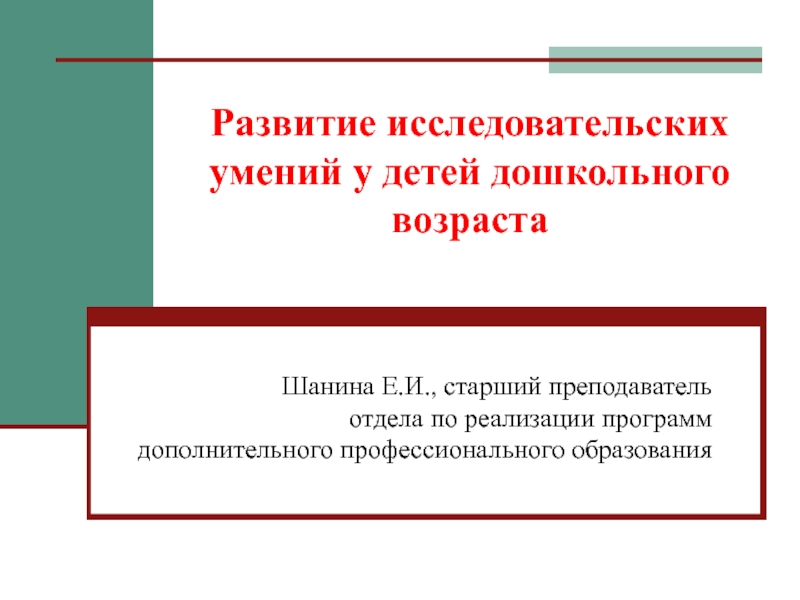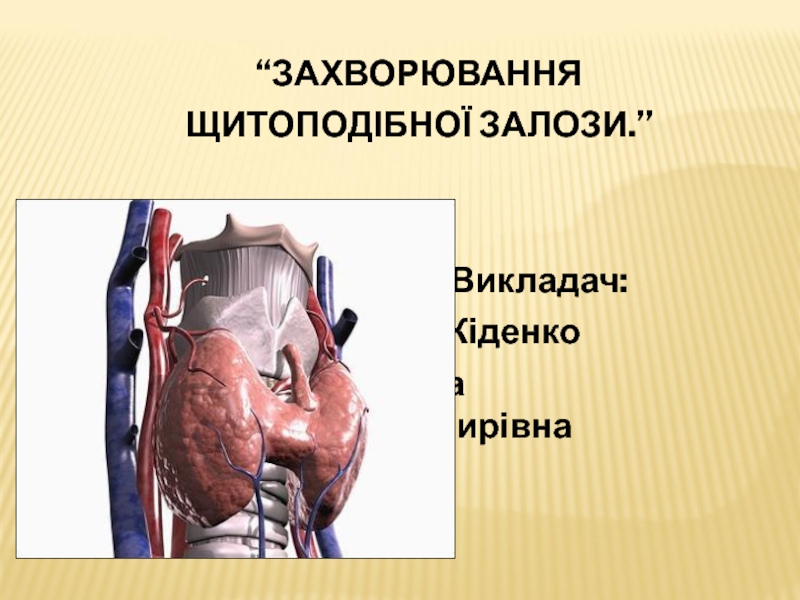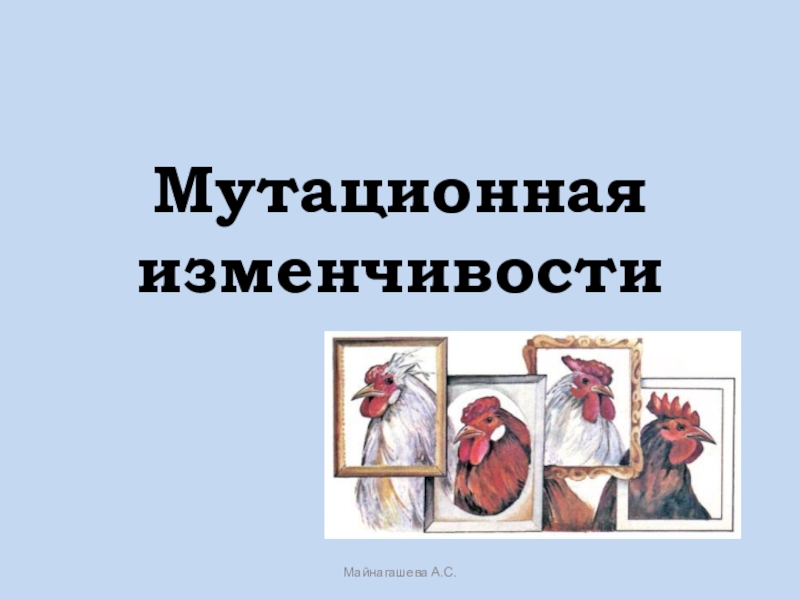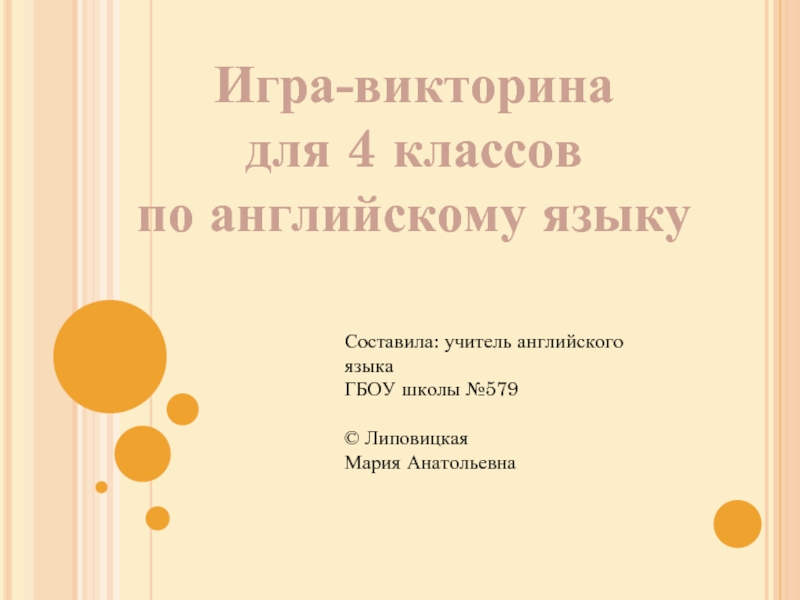Разделы презентаций
- Разное
- Английский язык
- Астрономия
- Алгебра
- Биология
- География
- Геометрия
- Детские презентации
- Информатика
- История
- Литература
- Математика
- Медицина
- Менеджмент
- Музыка
- МХК
- Немецкий язык
- ОБЖ
- Обществознание
- Окружающий мир
- Педагогика
- Русский язык
- Технология
- Физика
- Философия
- Химия
- Шаблоны, картинки для презентаций
- Экология
- Экономика
- Юриспруденция
Modal verbs in the past
Содержание
- 1. Modal verbs in the past
- 2. Modal verbs in the pastAbility in the
- 3. Ability in the past (it was
- 4. If you need to show specific realized
- 5. But you can use could for realized
- 6. Obligation in the past (it was
- 7. Opinions and advices in the past (it
- 8. Probability in the past (it was
- 9. Слайд 9
- 10. Translate from Russian into English:1) Он, возможно, был
- 11. 3) Мне следовало лучше готовиться к экзаменам.
- 12. 5) Ей не следовало говорить Майку о
- 13. Скачать презентанцию
Modal verbs in the pastAbility in the pastObligation in the pastOpinions and advices in the pastProbability in the past
Слайды и текст этой презентации
Слайд 3Ability in the past
(it was possible/impossible)
In the present:
can
/ can’t
She can play the piano.
In the past:
could/ couldn’t
was able/
wasn’t ableShe could play the piano at the age of five.
She was able to play the piano at the age of five.
Слайд 4If you need to show specific realized actions in the
past in the meaning "ability", use was / were able
to instead of could in affirmative statements and questions.For examples:
He was able to find Tom yesterday.
She was able to get across the river on a raft.
Слайд 5But you can use could for realized actions in the
past with some verbs of sense perception, such as "feel,
hear, see".1) I could hear loud shouts in my neighbor's apartment yesterday.
2) I could see that he was very upset.
Слайд 6Obligation in the past
(it was necessary/ not necessary)
In the
present:
must or have to
He must write his report today.
In the
past:had to / didn’t have to
He had to write his report yesterday.
Слайд 7Opinions and advices in the past (it was a good /
bad idea)
In the present:
should / shouldn’t
You should call her.
In the
past:should/shouldn’t+have+past participle
You should have called her yesterday.
Слайд 8Probability in the past
(it was certain/uncertain)
For the past we
use the same modals + have + past participle.
Слайд 10Translate from Russian into English:
1) Он, возможно, был в банке.
He might
have been at the bank.
2) Может быть, она выгуливала свою
собаку
вчера вечером.She may have been walking her dog
yesterday in the evening.
Слайд 11 3) Мне следовало лучше готовиться к экзаменам. Я провалил два
из них.
I should have studied harder for my exams. I
failed two of them.4) Он мог бегать очень быстро, когда был молодым.
He could run very fast when he was young.
Слайд 12 5) Ей не следовало говорить Майку о подарке. Предполагалось, что
это секрет.
She shouldn't have told Mike about the present. It
was supposed to be a secret.6) Она умела водить машину, когда ей было двадцать?
Could she drive when she was twenty?
